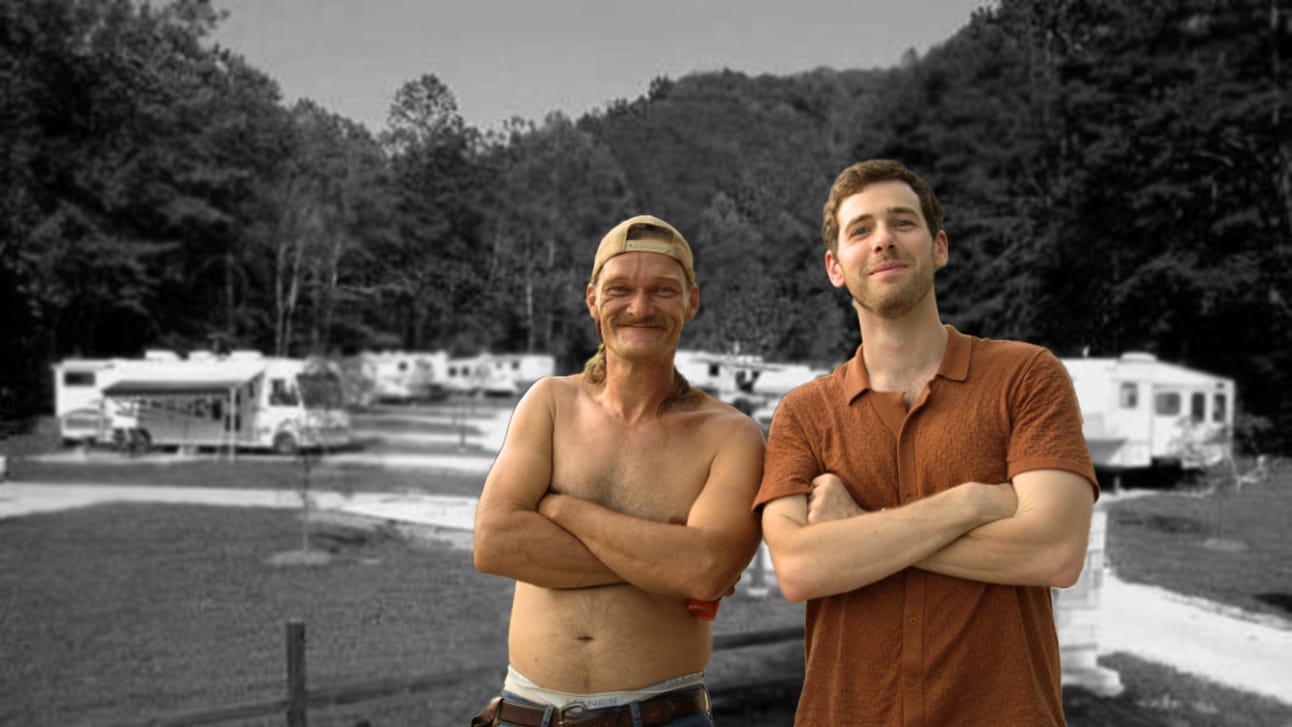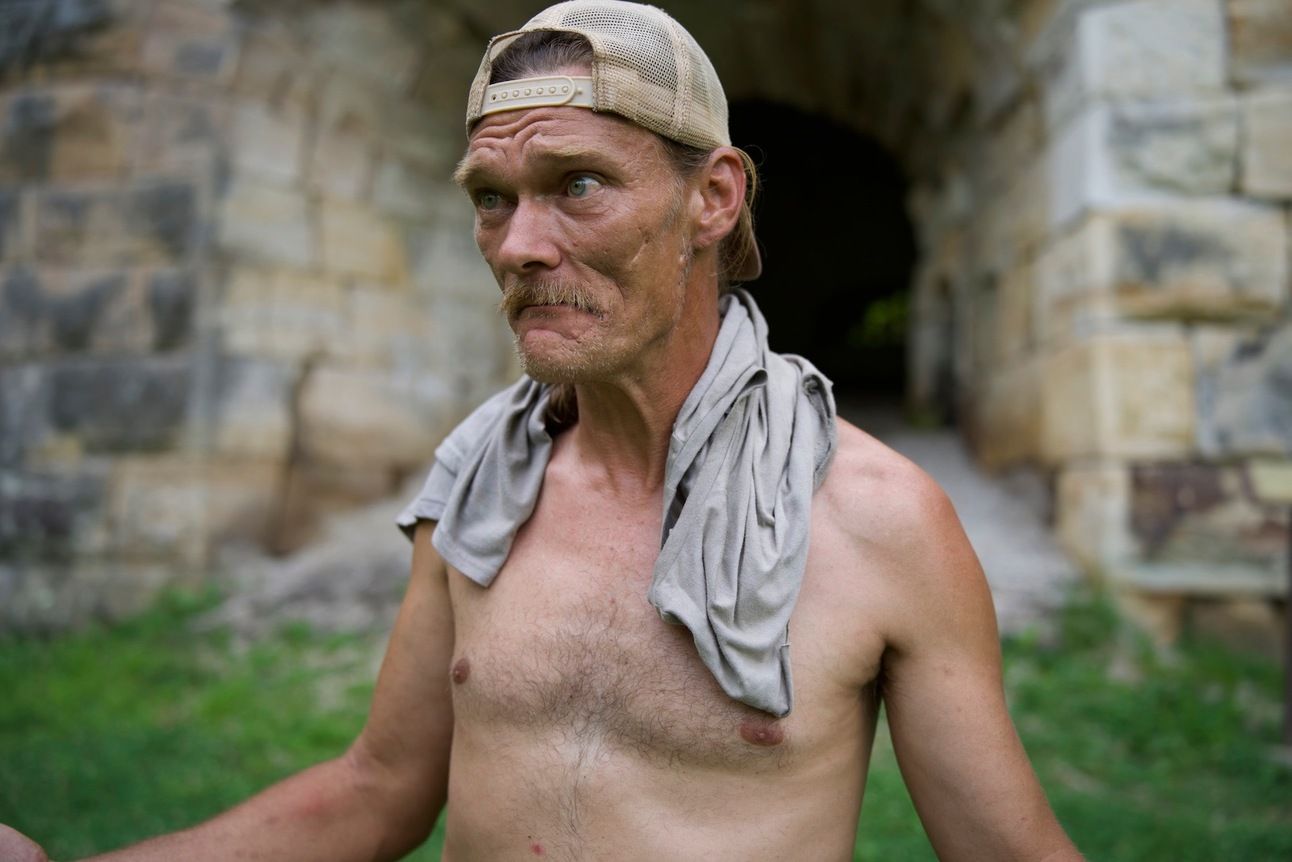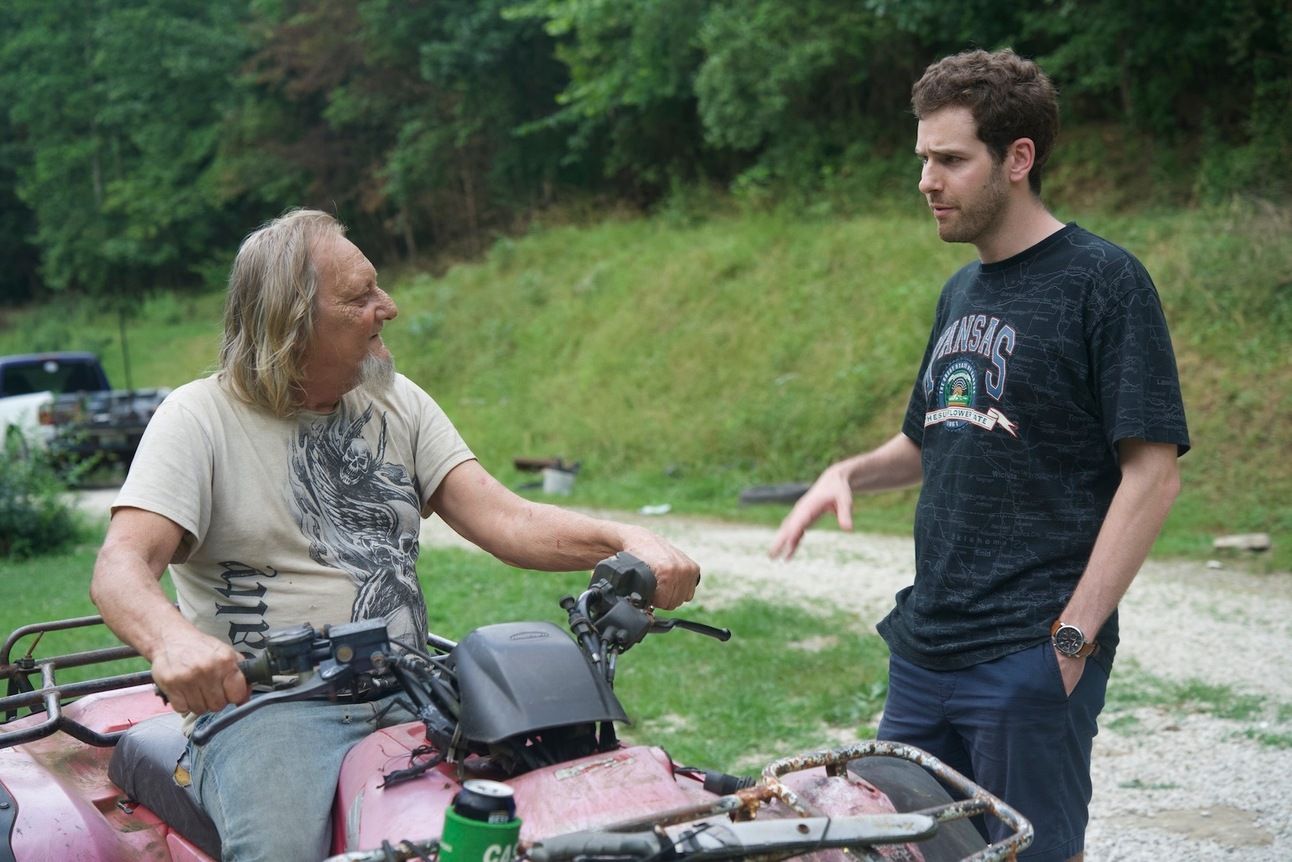
Did someone forward you this? Subscribe here free!
By Max Frost
Born and bred in the mountains of Appalachian Kentucky – with a “Trump Round 2” cap on his head and a snake-killing knife on his hip – Dellie is no liberal. In fact, like 80% of the voters in his rural Kentucky county, he voted for Trump.
Yet now, he has reservations.
“He’s cut these people down,” he said. “They ain’t got enough money to live.”

Dellie told us that he’s “lucky to eat sometimes”
Nor does Dellie: Homeless after a “rough couple years,” he says he’s “lucky to eat sometimes.” He does have health insurance, though, courtesy of the Medicaid expansion under Obamacare. Once the Big Beautiful Bill takes effect, though, he may lose it.

Eastern Kentucky and Appalachia more broadly have a complicated relationship with welfare: On the one hand, it’s deeply socially conservative with a cultural skepticism of the government and outsiders generally; on the other, it’s one of America’s poorest regions and disproportionately reliant on government help. In the town nearest to Dellie, Beattysville, the median adult income is $12,341.
Central to most Appalachian Kentucky towns we visited was a Social Security office, and one person after another told us how government aid – whether food stamps, Medicaid, disability, or development projects – supported them, their communities, or people they know.
This situation is divisive: When asking Appalachian people why their area had remained so poor, more than a few blamed welfare. Some voiced the longstanding conservative criticism that welfare has helped sustain a “culture of poverty,” by enabling people to live lifestyles that keep them poor. Like Native Americans told us in the Navajo Nation or black people in the inner city, they said people had become dependent on the government and forgotten how to prosper.
But to many others, welfare is the only way to survive in rural communities that are up to an hour’s drive from stable employment or where the only available jobs pay the minimum wage, $7.25 an hour.

In one holler – a dead-end valley deep in the mountains – a multi-generational family lived scattered between trailers and a couple of small homes. One resident told us that “everyone is on meth”; another said he relies on disability after giving up trying to find work.

Max Frost talks with a resident of the holler
A third man – evidently the most educated and well-traveled of the holler – told us that he was “whooping and cheering” during Trump’s first weeks in office, as the president signed one executive order after another dismantling liberal policies. Now, though, he was worried.
“They’re talking about making it where young’ns can’t get food stamps anymore unless they’re working 20 hours a week,” he said. “Where are they going to work?”
He waited for my reply.
The rest of this report is for paid subscribers, who fund our journalism. If you start a two-week free trial today, you’ll be automatically entered to win a free year. Once you sign up, you can access all of our articles here!

Editor’s Note
Thanks for reading. What are your thoughts: Will raising the eligibility requirements for food stamps and Medicaid help or hurt Americans? Will it cost Trump support with poorer voters? Let us know by replying to this email. We’ll be back soon with a deep-dive into the Big Beautiful Bill and its many components. Until then, enjoy your Sundays.
Want more? Check out our latest articles below:
Reader replies
Tons of emails in response to yesterday’s article about the NYT. Sharing a handful below. Keep the replies coming!
Lena wrote:
Good article - The NYT is the #1 most subscribed to digital newspaper surpassing 10 million subscribers and over $1billion in revenue so why change? Once these numbers start to decline, they may consider it, but they have no reason to now. People read and watch what confirms their opinions.
Katherine from LA wrote:
I know We The 66 is supposed to be subscription only, but I hope you publish this for everyone and on social media. Everyone needs to see this!! I've never thought about how elitism makes the NYT, and most of the press, so out of touch compared to you guys. Great piece!
Tara from Houston wrote:
There are some professions for which one takes an oath before being allowed to practice. I’ve often thought that journalism should be among those. The goal is not to influence others to see your point of view, but to try and peel back the layers to show the many sides to any one event or issue. Will you succeed? Most certainly not. Any writer is constrained by his own biases and experiences. But it is recognizing that, and always striving to do better that makes a great journalist. You guys are doing a phenomenal job. Keep up the practice.
Rodney wrote:
What the f*** is your point?
That’s all for today. Enjoy your Sundays, and we’ll be back with a breakdown of the Big Beautiful Bill tomorrow.
—Max and Max




